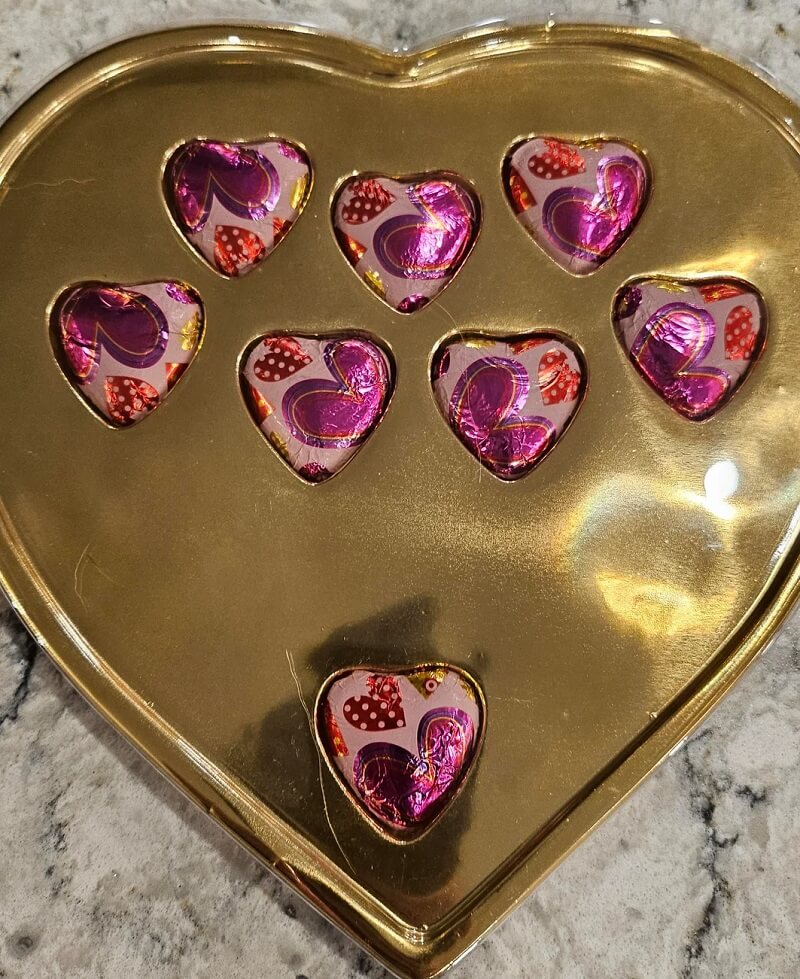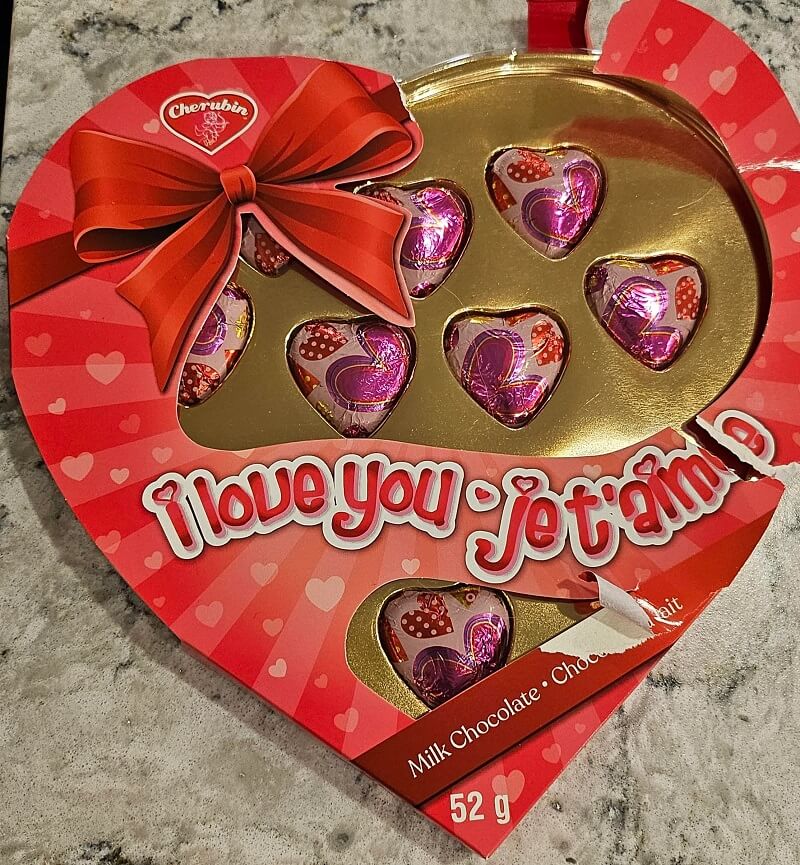In a bad example of life being like a box of chocolates in that you never know what you're going to get, one shopper found that what they got with their box of chocolates was deception.
What's happening?
In a post to the r/shrinkflation subreddit, the upset shopper shared two photos of a box of heart-shaped chocolates — one with and one without the outer packaging.


"Box of chocolates missing row hidden by packaging," the Redditor wrote above the pictures, referencing the fact that the outer packaging was covering an empty row rather than more chocolates.
"That is a ridiculous amount of packaging for a few chocolates," another Reddit user commented.
"When will they finally start taxing companies for unnecessary, excessive packaging?!" another asked.
"They did you dirty," a third quipped before offering a genuine suggestion: "I would call their toll-free number and complain."
Why is product packaging important?
Aside from being deceptive and leaving customers feeling frustrated, excess packaging comes with several costs. It costs the company more to make a bigger package, and a portion of that cost gets passed on to the customer.
This packaging trend, often referred to as "slack fill," refers to when a company puts a small amount of product in a large package to make it look like the customer is getting more than they are. It leads to a lot of excess packaging, and excess packaging — much of which is plastic — is also costly to the environment and the health of nearly everything existing within it.
Statista reports that about 40 million tons of plastic waste is thrown away each year in America, and only about 5% of this gets recycled. The rest makes its way to landfills and oceans, where it takes hundreds of years to break down.
Worse yet, as plastic waste breaks down, it creates pollution that leads to the dangerous overheating of our planet and leaves microplastics that wreak havoc on environmental and human health.
What's being done about product packaging?
Many companies, including Best Buy, PlantFusion, and Coca-Cola, to name a few, are working to reduce plastic in their packaging and make more sustainable choices. Others are working to create alternatives to plastic packaging, like Sway, which is making a new material from seaweed.
There are also actions we can take individually. We can look for plastic-free alternatives for everyday products, support brands with plastic-free packaging, and take the time to find companies that use sustainable packaging to begin with.
Join our free newsletter for good news and useful tips, and don't miss this cool list of easy ways to help yourself while helping the planet.









